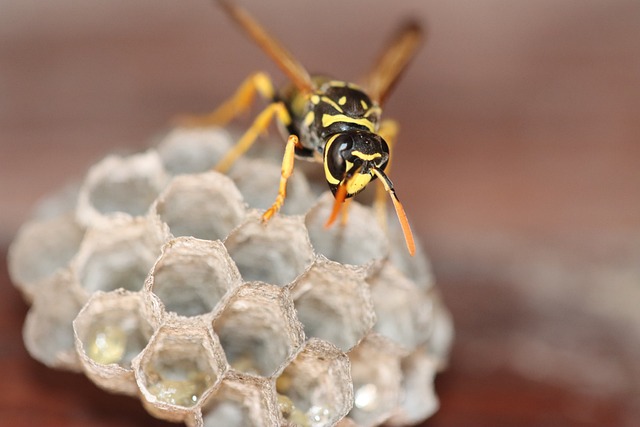In Sheridan, effective residential mosquito control is crucial for preventing West Nile virus transmission. This involves a multi-faceted approach including blocking water access for mosquitoes, sealing entry points into homes and attics, adopting sanitation practices, using EPA-registered repellents and traps, and encouraging natural predators. By eliminating breeding grounds, implementing physical barriers, using approved insecticides, and fostering community collaboration, Sheridan residents can safely enjoy outdoor spaces while minimizing the risk of West Nile virus.
Raccoons, while charming, can be a nuisance when they become mosquitoes’ breeding grounds. This introduction explores how raccoon exclusion plays a pivotal role in comprehensive residential mosquito control—a key strategy to prevent West Nile Virus transmission in Sheridan. By understanding these exclusion methods and implementing effective residential strategies, residents can significantly reduce mosquito-borne disease risks. Discover practical guides for a safer, healthier Sheridan environment.
- Understanding Raccoon Exclusion and its Role in Mosquito Control
- Implementing Effective Residential Mosquito Control Strategies
- Preventing West Nile Virus: A Comprehensive Guide for Sheridan Residents
Understanding Raccoon Exclusion and its Role in Mosquito Control

Raccoon exclusion is a critical component of effective residential mosquito control strategies, especially in areas like Sheridan where the presence of West Nile virus poses significant health risks. By understanding the role of raccoons in mosquito breeding, homeowners and pest control professionals can implement targeted prevention measures. These strategies focus on blocking access to water sources where mosquitoes breed, as raccoons often disturb and contaminate these sites with their droppings, leading to increased mosquito populations.
In Sheridan’s residential areas, a well-planned exclusion strategy can significantly reduce the risk of mosquito-borne diseases like West Nile virus transmission. It involves identifying potential entry points for raccoons into homes and attics, sealing these gaps, and implementing sanitation practices to deter raccoons from seeking alternative water sources nearby. This multi-faceted approach not only protects residents from potential wildlife encounters but also contributes to a healthier environment by reducing mosquito breeding grounds.
Implementing Effective Residential Mosquito Control Strategies

In Sheridan, residential mosquito control is not just about mitigating annoyance; it’s a critical strategy for preventing the spread of diseases like West Nile virus. Homeowners and communities should implement comprehensive plans that address both adult mosquitoes and their breeding grounds. This involves regular elimination of standing water, which can serve as fertile ground for mosquito reproduction. Simple measures such as emptying flowerpots, birdbaths, and buckets, as well as cleaning and sealing containers, can significantly reduce local mosquito populations.
Additionally, the use of repellent products registered with the Environmental Protection Agency (EPA) and the installation of mosquito traps can be effective. Encouraging natural predators like birds and bats through habitat creation also contributes to a balanced ecosystem where mosquitoes are kept in check. By combining these strategies, Sheridan residents can enjoy a more comfortable outdoor environment while minimizing the risk associated with mosquito-borne diseases like West Nile virus.
Preventing West Nile Virus: A Comprehensive Guide for Sheridan Residents

In Sheridan, residential mosquito control is a proactive measure not only for pest management but also for public health. The West Nile Virus, transmitted through mosquito bites, poses a significant risk to residents. Preventing this disease requires a comprehensive approach that starts with eliminating breeding grounds. Residents should inspect their properties regularly for standing water, such as clogged gutters or discarded containers, which serve as perfect sites for mosquitoes to breed. Emptying and cleaning these areas can significantly reduce the mosquito population.
Moreover, implementing physical barriers like fine mesh screens on windows and doors can prevent infected mosquitoes from entering homes. Using approved insecticides and natural repellents in outdoor living spaces also helps deter mosquitoes. Community-wide collaboration is key; organized efforts to maintain a clean environment and educate neighbors can effectively curb the spread of West Nile Virus. Sheridan residents playing an active role in these measures ensures not only pest control but also safeguards against potential health hazards associated with mosquito bites.
Raccoon exclusion plays a pivotal role in comprehensive residential mosquito control, especially with regard to preventing West Nile Virus transmission. By implementing effective strategies outlined in this article, Sheridan residents can significantly reduce mosquito breeding grounds and protect their communities from this potentially serious illness. Integrating these practices into your routine contributes to a healthier, safer environment for everyone.
